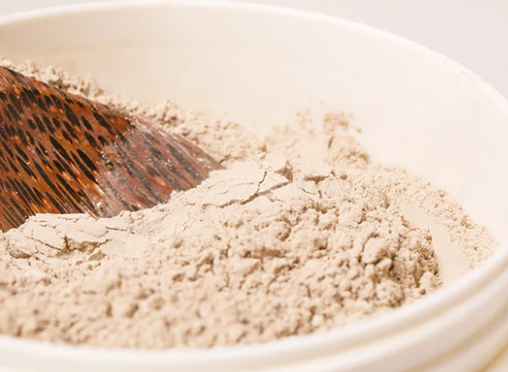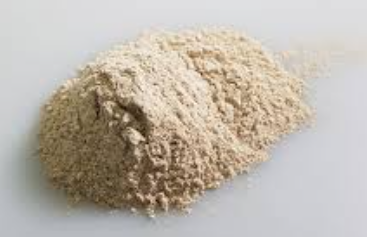- Understanding the Role of Geomembrane Liners in Waste Management
- Innovations in Geomembrane Liners for Water Management
- Geomembrane Liners: A Comprehensive Guide
- The Future of Geomembrane Liners in Civil Engineering
- Geomembrane Liners: Enhancing Landfill Stability
Manager:
WhatsApp:+86 177 0135 2670
Tel:+86 177 0135 2670
Email:marketing@okorder.com
Address:3rd Floor, No.2 Building, No.1 Sanlihe Road
Who should not use bentonite clay?
Bentonite clay is well-known for its countless uses and benefits and has therefore become a popular ingredient in various industries ranging from cosmetics to environmental engineering. Regardless the numerous advantages one can get, there are some specific situations or conditions when its employment is not appropriate. When considering the application of bentonite clay in the form of a “bentonite blanket” for environmental purposes, certain precautions and considerations must be taken into account. Let us find out who should avoid using bentonite clay and why.

Environmental Considerations
The use of bentonite clay in the form of a “bentonite blanket” is common practice mostly in environmental engineering where containment is required in landfill liners or sealing ponds or reservoirs. Its ability to swell and form an extremely tight barrier that does not allow water passage when wet makes it effective for these applications due to its unique properties. Nevertheless, there are occasions when this may not be suitable particularly in sensitive places ecologically speaking.
Ecologically Fragile Areas
In areas like wetlands, marshes, or vulnerable ecosystem areas called ecologically fragile areas, introducing bentonite blankets might disrupt delicate habitats as they disrupt ecological balances. The alteration of soil composition and hydrology as a result of the installation bentonite blankets may have unforeseen effects on indigenous plants and animals possibly leading to loss of habitat or displacement.
Protected Wildlife Habitats
Moreover, use of bentonite blankets may interfere with wildlife conservation efforts within regions designated as protected wildlife habitats or conservation areas. No matter how good intended for environmental remediation or containment purposes; any disruption caused by this activity should be minimized for it will affect animal populations living there with their habitat.
Water Bodies with Endangered Species
Installing of bentonite blankets could endanger some species in such cases where endangered species occupy water bodies like rivers, streams or lakes. The health status as well as reproductive successes of these species may be affected by any leachate of chemicals or change in water quality which arise as a result of installation of bentonite blankets.
Health Concerns
In addition to the environmental considerations, there are health related factors that might necessitate caution or avoidance while using bentonite clay especially in some people or under certain conditions.
Skin Sensitivities and Allergies
Direct contact with bentonite clay can cause various adverse reactions like redness, irritation, or allergic dermatitis in people who possess sensitive skin or have a history of allergies. Although it is generally safe to use bentonite clay on the skin topically, it is recommended that one performs a patch test on a small area before applying more extensively to detect any sensitivities if present.
Respiratory Issues
While working with dry bentonite clay powder, for instance during dusty environments there are chances of respiratory problems arising such as asthma and chronic obstructive pulmonary disease (COPD) exacerbation. Inhalation of the particles can lead to respiratory tract and lung irritations which will result into coughing wheezing difficulty breathing.
Ingestion Risks
Most oral care products and dietary supplements contain bentonite clay, but concerns have been raised about its safety when taken in large amounts. Nonetheless, inadequate hydration or excessive consumption of the product could lead to intestinal discomfort, constipation or blockage. Furthermore, some bentonite clay brands harbor impurities and other contaminations that might increase further health risks associated with digestion.
Special Populations
Also there are others who need to give attention when using bentonite clay including pregnant women, infants and people with weak immune system due to their potential harm on their health and well-being.
Pregnancy and Lactation
Expectant or lactating mothers ought to ensure they consult medical practitioners before applying internal bentonite clay especially if they wish for extended exposure while very little research has been carried out regarding pregnancy or breastfeeding context of this product shows that it would be best not used at all as precautionary measure for harming an unborn child.
Infants and Young Children
A baby’s gastrointestinal tract may become blocked or irritated after consuming certain products which are made up of bentonite clay owing to their delicate digestive systems. In childcare settings where babies can accidentally come into contact with surfaces contaminated by ingestion of bentonite clay during playtime, parents should be vigilant in avoiding such products.
Immunocompromised Individuals
Someone whose immunity is weak like a cancer patient under chemotherapy or someone with HIV/AIDS may easily develop complications following the exposure to bentonite clay because their bodies are unable to fight infections or tolerate foreigners. For such individuals, strict observance of hygiene practices as well as avoidance from unnecessary exposure can be helpful in averting these dangers.

Conclusion
However, not every individual nor any particular situation is suited for using Bentonite Clay though it has several benefits. Additionally, environmental factors, health concerns and various special populations also make use of Bentonite Clay inappropriate especially through the application of bentonite blankets towards environmental purposes.This way, by being cautious of the likely risks involved in using it, people and institutions can be able to decide on what well-protects human health and conserves ecology.”
-
2024-05-15How long does bentonite waterproofing last?
-
2024-05-15What is bentonite used for?
-
2024-05-15What happens when bentonite gets wet?
-
2024-05-15Does bentonite go bad?






